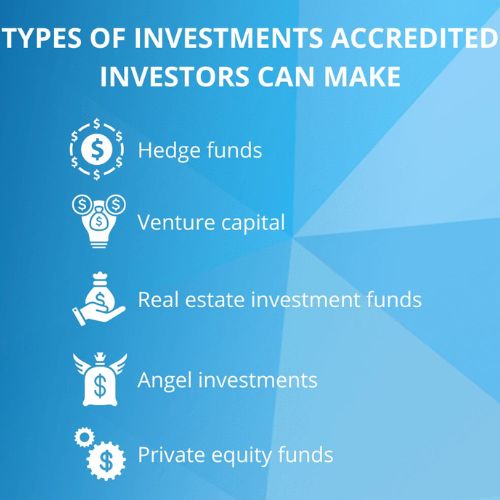The Importance of Accredited Investor Lists
by siteadmin

Working an accredited investor list can be a time-consuming endeavor. Getting the right people to take notice of your firm takes a lot of nurturing and hard work.
Accredited investors must have a minimum net worth of $1 million which excludes the value of their primary residence. Having these investment heavy hitters on your side can lead to many good things.
Oil and Gas Industry
A well-built accredited investor list can save you time and increase your sales volume when raising capital for your company or project. The key is to use psychographic / demographic qualifiers that match your core customers. For example, age, net worth, home value, purchasing behavior, occupation, FICO score, education level, and lifestyle interests are all important factors in determining who makes the best qualified investors for your security offerings.
Oil and gas companies are no stranger to a slew of challenges that threaten the stability of their business model. In this industry, supply disruptions, price volatility and a shift towards renewable energy are just a few of the issues that need to be addressed.
As a result, the need for consistent access to funding has never been more critical. One option for many of these companies is bank financing. However, this method can be very difficult for startup oil and gas companies, as they must have a well-documented business plan to qualify. This can be a long process that takes months to complete. Another option is project finance mechanisms, which are designed to give startups the capital they need in a short amount of time. Currently, these mechanisms are used by some of the world's most popular energy companies, such as Exxon (U.S), Chevron (U.S), and Saudi Aramco (Saudi Arabia).
Real Estate
If you’re looking to raise capital for your company or project in the real estate industry, marketing towards accredited investors will save you time and increase your sales volume. In the United States, individuals can become accredited investors by meeting the SEC’s definition of having a net worth of over $1 million (excluding their primary residence) or earning an income of more than $200,000 in each of the past two years with expectations of doing the same this year. Financial professionals with Series 7, 65, or 82 licenses can also qualify as accredited investors.
A person claiming to be an accredited investor may need to provide documentation like tax filings, pay stubs, bank statements, and investment portfolios to prove their status. Additionally, some securities issuers will require that an individual be re-verified every 12 to 24 months to make sure they still meet the accreditation requirements for the specific securities offered.
When working with a large number of potential accredited investors, manually verifying their status can be cumbersome for the parties offering the investments. In addition, more verifications can mean a higher chance of human error for which the securities issuer can be held liable. Luckily, there are many ways to streamline this process. For example, private real estate crowdfunding platforms like EquityMultiple allow potential investors to automatically be verified for accredited investor or qualified purchaser status by submitting documents like W-2 forms, income tax returns, and bank statements.
Private Equity Space
As the private equity resurgence continues, investors are finding a lot of deals to consider. As of 2022, global private equity dry powder levels reached an all-time high of $3.7 trillion. With that much money floating around, many companies and projects are turning to private equity firms for help.
Private equity firms excel at building and managing an M&A pipeline, but they also have the expertise and experience to hone in on the right opportunities for their portfolios. Their primary goal is to generate returns for their investors by buying out existing companies and putting them back on the path to success.
This is where the accredited investor definition becomes more relevant than ever before. This status gives individuals the ability to access more sophisticated investments, such as funds containing over 100 investors and 3(c)(7) private equity offerings. This is because they can prove a higher level of net worth and consistent income than non-accredited investors.
This can be accomplished by releasing W-2 forms, tax returns and investment portfolio statements that prove an individual or organization's current net worth exceeds $1 million (not including their primary residence) or their annual earned income exceeds $250,000 per year. Some investment platforms and issuers may also require that the accredited investor or qualified purchaser re-verify their status at certain intervals, such as every 12 to 24 months.
Working an accredited investor list can be a time-consuming endeavor. Getting the right people to take notice of your firm takes a lot of nurturing and hard work. Accredited investors must have a minimum net worth of $1 million which excludes the value of their primary residence. Having these investment heavy hitters on your side…
